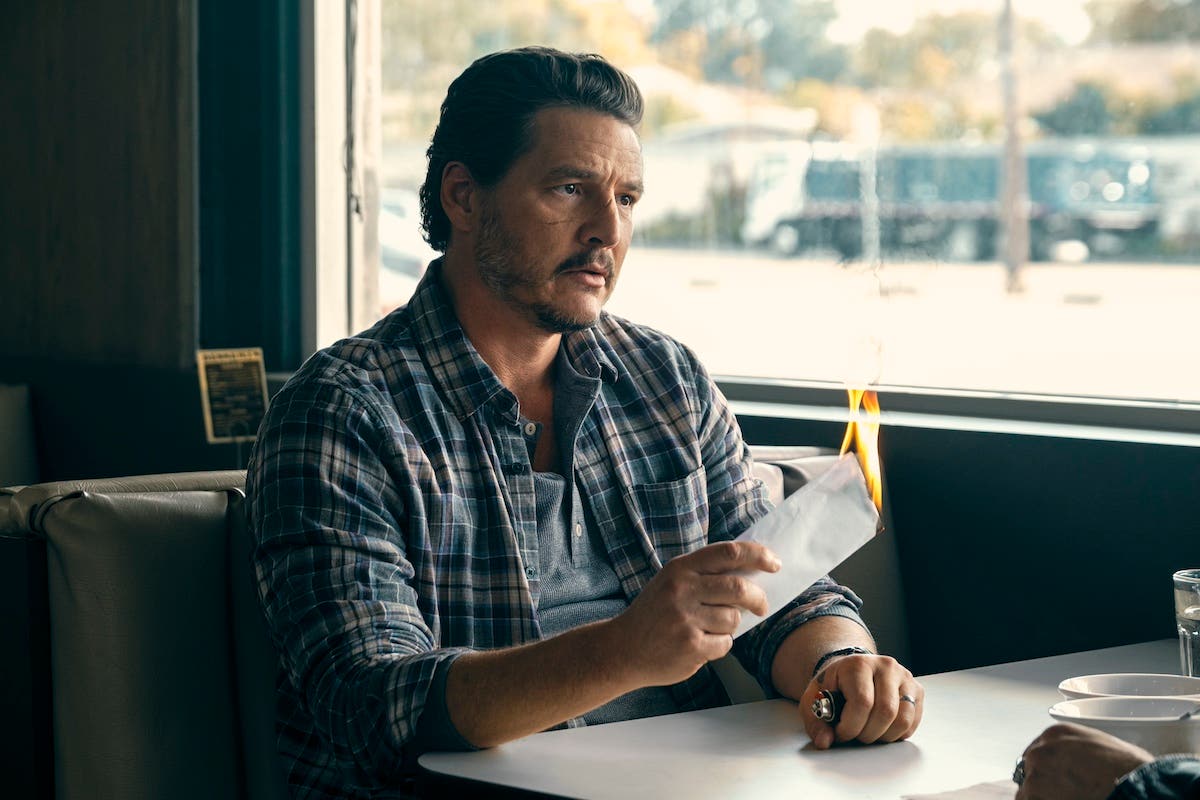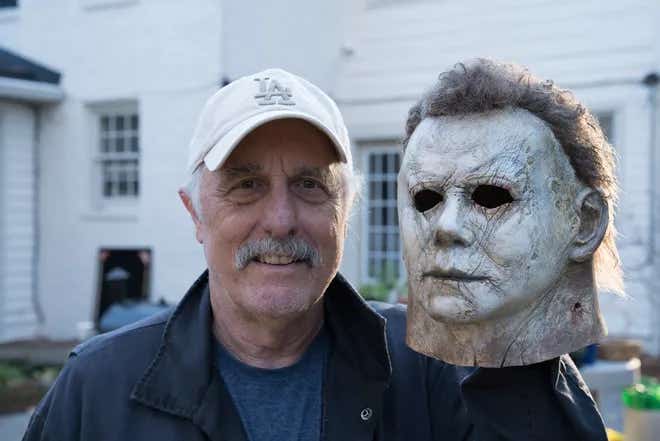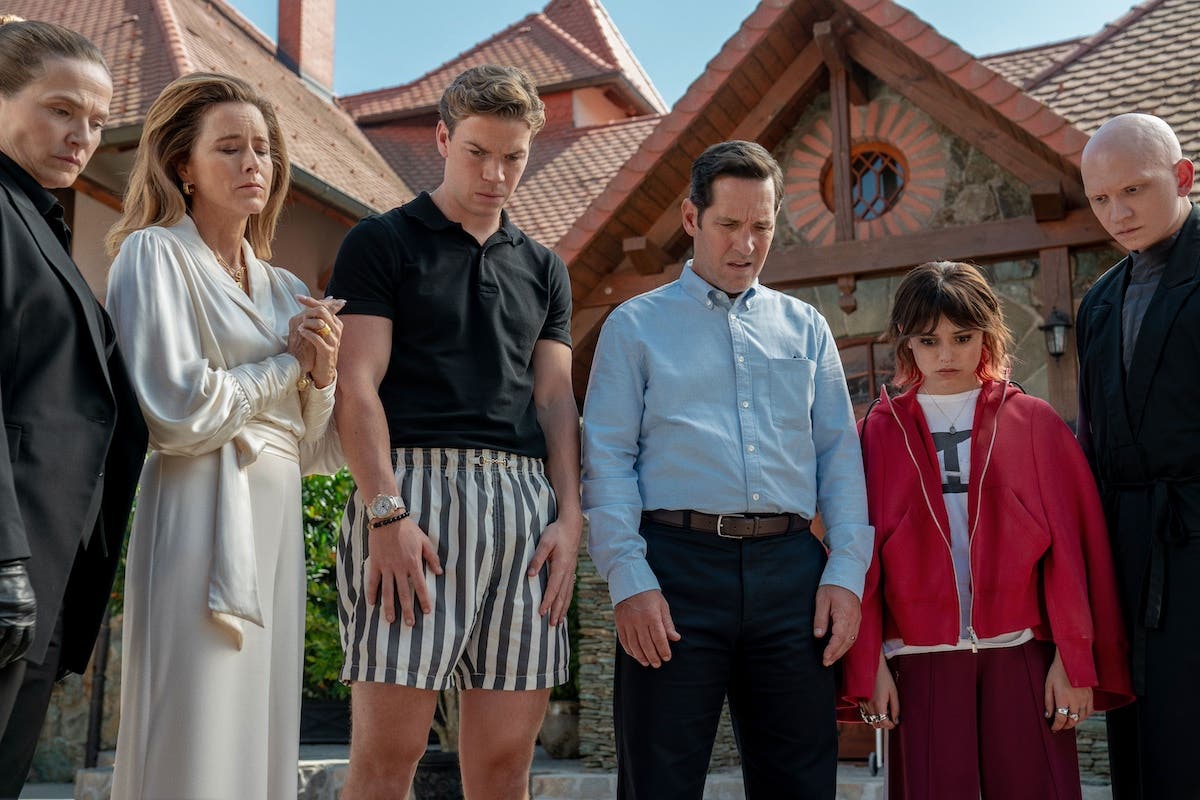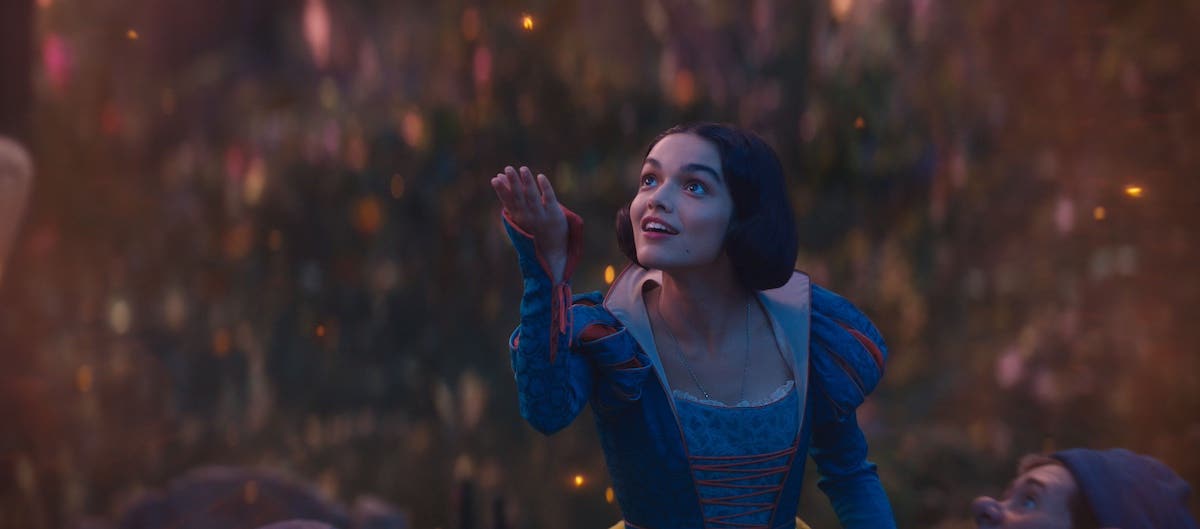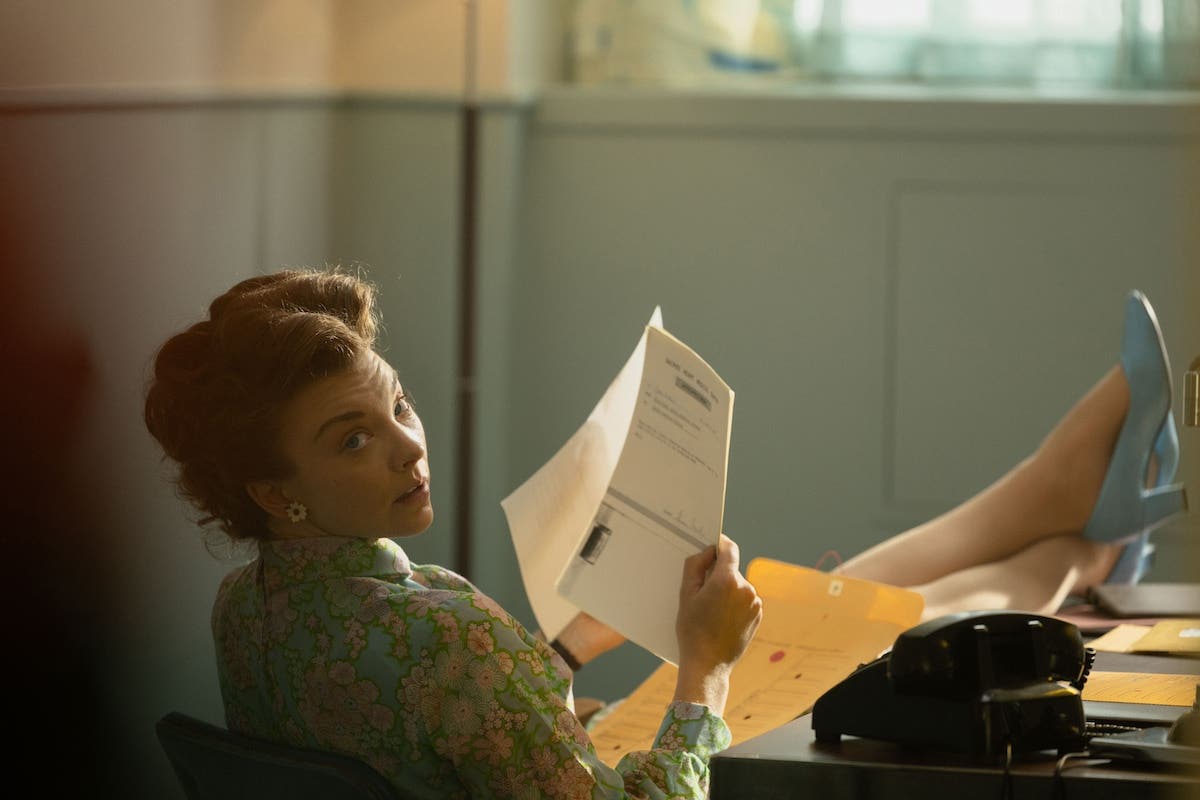Writers on the Web: Veteran Producer/Literary Manager Gary W. Goldstein on Breaking Into Hollywood (Part One)
Rebecca Norris talks to Gary Goldstein (Pretty Woman, Under Siege) about his career, advice for writers, and his new YouTube show, Breaking Into Hollywood.
Rebecca Norris is a writer, producer, web enthusiast, and creator of the award-winning web series Split with her production company, Freebird Entertainment. Follow Rebecca on Twitter at @beckaroohoo.
I was honored to have the opportunity to sit down with veteran producer and literary manager Gary W. Goldstein (PrettyWoman, UnderSiege, The Mothman Prophecies). In this two-part interview, Gary gives incredibly helpful advice about networking and relationship building, talks in-depth about his amazing career, and introduces his newest venture, BreakingIntoHollywood, an online Master Course for writers on networking, branding, pitching, taking meetings, and breaking into the business. The Master Course has an accompanying show on YouTube, where Gary interviews other industry veterans, who discuss their careers and give fantastic tips that can help both new and established screenwriters.
REBECCA: What got you into managing writers and producing?
GARY: The short version - when I moved to Los Angeles from San Francisco, a very different world, a more provincial, conservative world, a world where I was an attorney, and where I was not doing what I was supposed to be doing, and also getting a great background, a really solid piece of my foundation. But I wasn't living. I was not excited in the morning. And I thought, well, if not this, then what? It wasn’t like I had this dream of going into movies when I was really young; I didn't. What I did have was a love of literature and I was a fan of film. I loved a good film, but I was a big reader. I loved storytelling.
Sometimes we all look at our families and go, “How did I birth myself into this environment?” I loved my family, but we're not alike at all. I was this daydreamer. The reason I went to law school was because I was afraid that if I didn't ground myself literally, if I did not learn an adult language and get some adult skills that were recognizable in the marketplace of humanity, that I would be eternally lost in this sort of wormhole of daydreaming. I was the essential daydreamer. My family was amazed by me. I was literally disconnected conversationally, circumstantially from whatever was going on. I was lost in my inner world. And that was - I don't know, chicken and egg. Was it because I fell in love with literature and it inspired my own creativity or was I just drawing from it and leaving that a little bit further on my own? I don't know. I was a daydreamer, but there was no profession called “Daydream.”
REBECCA: There isn't? You can't get a degree in that?
GARY: Had there been a way to earn an income and have a profession and a business card that said 'Professional Daydreamer,' that's what I would have become. So from my perch in San Francisco, where there was no meaningful entertainment industry of any kind, my first stab was music; when I was an undergrad at UC-Berkeley, I produced concerts. Music did not at that time seem the right fit for me. So long story short, as I recognized that being an attorney, as a pursuit was not going to deeply satisfy, my focus shifted to the Southland.
It was a new world, that storytelling world that is film and television, and God, I didn't know the vernacular, I did not know the size of it, the shape of it, who was in it, what they did, I didn't know people in LA; there was a magnetic pull. And I thought, if there's something that would be a better fit for me, that seems like that might be it.
So I came down here [to Los Angeles] and did not want to be a lawyer. I was very clear about the things I didn't want. I'm not a ladder-climber, I'm not a good corporate or group player, every member of my family on both sides had always been entrepreneurs, pretty much none of them when into their father's business, they all started something of their own. So I had this idea, naturally, that it was in the natural order of things that you strike out on your own and you build something. That was kind of all I'd seen. I did not know what that meant; I'd never done it. So I moved here with this very innocent notion of how the world might work.
When I arrived I realized very quickly that I was unemployable; partially because I had no network, I didn't know anyone, partially because I didn't have any understanding of the business. I'd never been in it; I'd never read about it, I didn't know what the contours of it were. I didn't even know where the studios and networks were located or what the job titles were. I'd never read a screenplay.
So there was a lot to learn. A neighbor, the former CEO of Columbia Pictures Television, one of the smartest, funniest guys I've ever known. We took a liking to one another and he sent me on meetings to all the bigwigs in all the major studios. Mostly whoever was sitting at the very top at what was called Business and Legal Affairs at each of the studios, I met with them or someone equally important.
REBECCA: Wow, that's serendipitous.
GARY: I was in my heavy wool San Francisco lawyer suits in an un-air conditioned car, driving and getting lost on the freeways of southern California in the dead of summer, sweating bullets - literally - trying to find my way - metaphorically and literally - and finding myself in these massive, back then, massive offices - this was old Hollywood. And I'm with these very elegantly presented and dressed, very successful individuals running the studios. I had no idea how to have a conversation with them, but they were all great and gracious because I was referred in the door by someone they really knew and admired.
So my reception was impeccable and the substance was almost humorous, because I could talk about criminal law, I could talk about a number of things, but I had no idea what to say to these people. I didn't know what they did and so we would have a great meeting and shake hands - we'd end up talking politics or something we could banter back and forth about. And I went home from these meetings and I thanked my friend whose name also happened to be Gary. Like, that was amazing and privately horrifying because I realized whoops, I don't know how to connect these dots.
But I was here and I had committed myself. And I'm stubborn and proud and I thought I can't retrace my steps; I can't go home again. Literally I can't, I didn't want to go back to San Francisco. More importantly, I couldn't bear the thought of resigning myself to doing something I didn’t want to do... I thought there was a sense that I had some destiny that was more than being an attorney and that if I went back, I'd be an very unhappy person. So I was going to stick it out.
Sometimes, we're forced into the simplest - you know, we get very basic. We need to survive. And I needed to survive, so I got really basic and I joined an outdoor health club. And I've told this story several times and it's always interesting because you've got to find a place where you can learn and meet people if you want to progress and advance and succeed in anything in life. So I needed to find that environment. And I clearly couldn't walk through the gates of Paramount or Warner Brothers and feel comfortable - I felt horribly uncomfortable. I knew what I didn't know. I was afraid. That's the truth. I didn't have the language. So I joined an outdoor health club so that I could meet people in a comfortable, relaxed environment, guessing that some percentage of the people were swimming or playing tennis or aerobics, back then, whatever they were doing, they might be freelancers, they might be in the creative industries in some fashion.
REBECCA: Because they were free during the day.
GARY: They were not on a nine to five schedule. If true, then maybe I could learn and make some relationships. And it turned out that was exactly right. The gym was near MGM and Culver City, and the people were writers, they were producers, they were actors, they were every stripe of creative. This was one of their happy sanctuaries. This was when they got to go swimming, when they got to relax, when they got to work out, when they got to see their friends; there were a lot of regulars. So I just showed up every single day. I made it my home; I made it my office. Instead of me wearing a suit I was in a tennis outfit. Instead of having a fax machine, I had tennis gear, but I looked at it as my office.
REBECCA: I love it.
GARY: I played a couple of hours of tennis every morning, I played a couple of hours of paddle tennis in the afternoon, and I went swimming in between. So I was there at least a handful of hours every day.
REBECCA: You must have gotten in good shape.
GARY: My tennis game was unbelievable. Same with paddle tennis. I was in the best shape of my life and I was very tan. My habit became that if you came to the tennis courts looking for a game I'd ask you--before, during, or after--tell me about yourself. I haven't seen you before, do you live nearby? Where are you from originally? I'd get their last name, you know, what do you do? What brought you to L.A.? And because they're in this unassuming, natural, hair-down environment, they would strike up a conversation. I'm actually curious about people, but I made it a focus.
I was totally other-focused. I wanted to know everything about that person, and on my part, I would simply say I'm new to L.A., I'd tell them whatever - I went to UC-Berkeley, I grew up in San Francisco, born in New York - I'd make it really short. I practiced law, it wasn't for me, I came here to get into the entertainment business, specifically the film business, but here's the truth. I have no idea. I don't know the first thing about it. So, I have this massive deficit. So now that I've learned that you're a writer or you're a fill-in-the-blank, after the game would it be okay if we spoke for five minutes? I have a few questions that would be massively helpful if you could give me just a few minutes. Because what you share with me could actually change the course of my future in L.A.
REBECCA: Amazing.
GARY: So I developed this thing where I'd say would you be my 3.7, my 4.5 minute mentor and I turned everyone - everyone - into a friend and a mentor by really showing that I cared, and it was legitimate, I wasn't faking it. I really cared to learn about them. I cared to understand who they were and what their strategy was and how they got there. And to take advantage of this fabulous resource that was standing in front of me and say I have a question or two. Let's sit down after the game and inevitably those turned into friendships because incrementally I would play more tennis with them - I would make a date.
I believe that frequency is the key to success in life. So I might meet you in person. Then we talk on the phone, then I see you again, well, now we're familiar. By the third time, which I call the rule of three, we don't really know each other well, but our brain tricks us. It's the way we are programmed. By the third time I've interacted with you, it's safe. I'm not worried about what you want from me. By the time I've dealt with you three times, assuming you're pleasant and, you know, we get along and assuming basics - I become more open. My chest is open, my arms are open, I'm smiling, it's like okay, this is friendly.
My goal in life is always to do that with everybody. And then - that's just the first chapter - and then you deepen it. There's a lot of ways to do that. But with those people I never asked them for a lot. I didn't say right away: introduce me to people that you know. If I were a writer I wouldn't have said read my script. If I were, you know, whatever it was, I wouldn't say give me your time, give me your expertise, do for free what you do for a living. I mean, people have to appreciate that you're asking everyone for this precious resource which is their life, their time, and their brilliance and the years they've invested learning what they know. Just give it to me for free. And I think that's okay, but not real. Certainly that's not how you say hello.
REBECCA: I agree.
GARY: So I think hello has to be genuine. If it's not, it doesn't work; it shows. But I think hello is: who are you? And you say their name and you ask about them and you care enough that you actually are listening and not preparing your rebuttal.
And that's all I did for that first year that I was in Los Angeles. I pretty much spent the year creating my network. I didn't have a lot of alternatives, so I'm not going to tell you it was an inspired bit of brilliance, it was just what I could do.
REBECCA: To survive.
GARY: Well what happens in time is that these people decide, “Oh my god, we like this guy. We know he values us, and we know that because I gave him a piece of advice a couple of weeks ago and he's already come back to me and said that he's implemented it. He's thanking me and...”
REBECCA: They feel like they've contributed. They feel good about that.
GARY: Yeah, yeah. And I forget where this began, this question...
REBECCA: It was how you got into producing.
GARY: Well, that part was very intentional. One of my early heroes was Maxwell Perkins. You know him?
REBECCA: I've heard of him.
GARY: In my view, the single greatest editor of the last century. He spent his entire professional career at Scribner and Sons, 30-40 years I think. He discovered, nurtured, launched, father-figure-to Ring Lardner, Thomas Wolfe, Faulkner, Hemingway, I mean, I'm missing the majority of the names, but his kids were some of the greatest literary figures of the 20th century. And he was as brilliant a man of letters as they were. And I thought - I wasn't particularly attracted to the idea of going into the book world, that deep literary world - I didn't want to be Max Perkins. I wanted to emulate him in the sense that if I could be a small fraction to the film world that he was - if I could emulate that on the film side, so if I could find, discover, nurture, launch careers for writers or writer-directors or directors on the film side; that was my model. I just wanted to use that as a guidepost.
So when I moved to LA in the early 80s, I think I opened a company in '83, it was a literary management company. At that time management was really for actors; writers and directors had agents. So this whole newer thing of management and production, that was yet to be discovered. But I knew then that I wanted to work with writers and directors, not actors. Having asked around and learned that I don't really want to be an agent, I don't want to be licensed, I don’t want to work at someone else's company. I'm just going to work out of shoebox and I'm going to call myself a manager, and no one can stop me.
Then when I was back on the tennis court, and someone said “I'm a writer” when I asked what they did, or a filmmaker, whatever it might be...”I'm into TV, I'm in film, I'm whatever”, I could legitimately say, “What a coincidence, I represent people just like you.” And they would go, “Really?” Because most of them were not represented. I had no idea if they had any talent, I was not at that level yet, but I would take on people that I liked. I would read their work and then I can only tell you as much as a lay person can tell about reading a script. Because I could tell if it was really bad, or if I didn't like it, but if I liked it and I liked their personality and I thought they would be good in a room, that was important to me. Would they represent themselves well in a conversation? I would sign them, and eventually I really did figure out over time: “Oh, this is a proper script, this is structure, this is good storytelling, this is good character development.”
So I schooled myself over time, people helped me along the way, but all I cared about was I wanted an excuse to be able to pick up the telephone, call you and say look, you don't know me, but I have this incredible small, hand-selected stable of brilliant talent. We need to meet for coffee, I need to come to your office, we need to know one another. And they would say yes. And I applied that same idea to their assistant. I always went through the assistant, I could get them on my side and then we'd go to the boss. Whatever it took. So I played the same sort of game. Not game...strategy. It's just human nature. But I had now a legitimate portfolio. Whether they were the best or not, I could get in a room, because I needed to sell me first.
REBECCA: They knew you were credible first.
GARY: Yeah, I needed to have a rapport and bond and be able to call them and become friends and keep that thing going. And then the doors opened to my clients and I could get honest feedback. And I always did it palms up, same thing. I'm not going to ask for a lot up front - and by the way, when I do, I'm doing it by not overselling it like this is the greatest breakfast you'll ever eat, this is the best cake and the best eggs, oh my God, one hundred million dollar, blah blah blah. But I would say is you don't know it but you've unintentionally become one of my mentors. I really admire what you've accomplished; I've seen how you operate in the world. It would really mean the world to me; I think this client really has some talent. Do me a favor.
And only once we really bonded at a certain level I would ask them to take a look at a client's work. But I want you to be brutally honest with me; I want you to tell me what you see. It took all the pressure off, now it's not like I'm selling you, now we're co-conspirators in search of the great new talent, the new voice, the new exciting project. And I've always used that approach ever since. I never shift, you know, it's not like you get to a level of success and say...screw it. No. It's the best way to do it, because that actually is what we're here to do. Bottom-line, Max Perkins. I knew I wanted to work with writers and directors and the only way I could do it was to become a manager, if I wanted to grow my own entrepreneurial sandbox. It seemed like I defaulted. My answer to you is I backed into the only solution I could see in front of me. Or behind me.
Stay tuned for Part Two of Gary's interview, where he'll offer more incredible advice about relationship building, share the story behind Pretty Woman, and talk about how he's educating screenwriters through his Breaking Into Hollywood courses and web series.
- More articles by Rebecca Norris
- Balls of Steel: The Secret to Finding a Screenwriting Mentor
- FREE Online and Offline Networking Tips for Screenwriters
Get More of Gary's advice on screenwriting in his book
Conquering Hollywood: The Screenwriter's Blueprint for Career Success
Learn how to find a literary agent in our FREE download, Screenwriters' Guide to Navigating the World of Literary Agents and Managers!
Rebecca Norris Resnick is a screenwriter, filmmaker, instructor for Writer’s Digest University, and columnist for Script Magazine. Distributed features include Cloudy With a Chance of Sunshine (Indie Rights and House Lights Media) and short films On Becoming a Man (Shorts International) and Toasted, which won the Canadian Film Centre’s ShortsNonStop competition. Rebecca’s films have screened in festivals worldwide including Cannes, Dances With Films, Hollyshorts, Manhattan Film Festival, Breckenridge Film Festival, and the Julien Dubuque Film Festival, and have won and been nominated for numerous awards. Rebecca is also an alumna of the ABC/Disney Television Discovers program, where her script Misfortune Cookies was performed in both New York and Los Angeles. When not working on her newest project, Rebecca stays on her toes chasing both her adorable daughter and her tuxedo cat, Sox.
Learn more about Rebecca at rebeccanorrisresnick.com.


